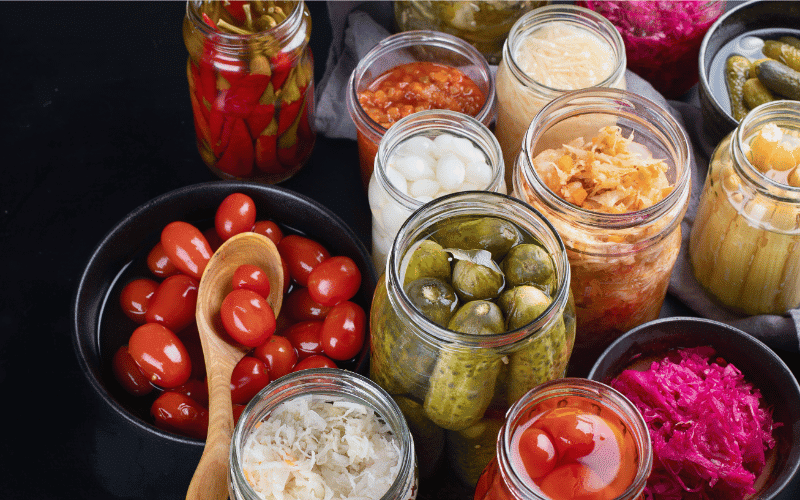Food 12: Preserved Foods

Preserved foods, such as pickles, sauerkraut, olives, and even certain types of cheese, should be minimized in the diet of someone dealing with atrial fibrillation. The primary concern with these foods is their extremely high sodium content, used in the preservation process to increase shelf life and enhance flavor.
Sodium, as previously discussed, has a profound effect on fluid balance within the body. Consuming high amounts of sodium, especially consistently, can lead to fluid retention, which means there’s more blood circulating in the body. This forces the heart to work harder to pump this excess volume, causing an increase in blood pressure, a scenario that could potentially trigger an afib episode.
In addition to the immediate effects of sodium intake, chronic consumption of foods high in sodium can lead to a state of long-term high blood pressure, medically known as hypertension. This condition is a recognized risk factor for afib, as it could lead to structural changes within the heart, making atrial fibrillation more likely.
It’s also important to remember that preserved foods often come in canned formats, which might contain additional additives and preservatives that could further exacerbate afib symptoms. Some of these substances have been linked to metabolic disturbances, inflammation, and oxidative stress – all of which are unfavorable conditions for heart health.
To cut down on sodium intake, consider fresh fruits and vegetables instead of their canned counterparts. Opt for homemade pickles and preserves, where you can control the amount of salt used. When it comes to cheese, select fresh, natural cheeses over processed ones. By making these mindful choices, you’ll be taking significant steps toward managing your afib symptoms. (11)